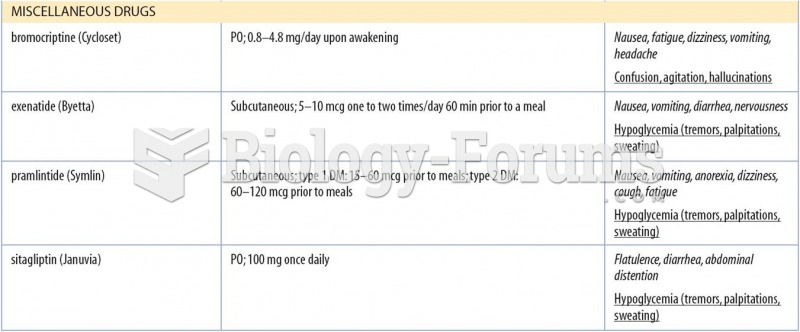|
|
|
Excessive alcohol use costs the country approximately $235 billion every year.
On average, someone in the United States has a stroke about every 40 seconds. This is about 795,000 people per year.
All patients with hyperparathyroidism will develop osteoporosis. The parathyroid glands maintain blood calcium within the normal range. All patients with this disease will continue to lose calcium from their bones every day, and there is no way to prevent the development of osteoporosis as a result.
The FDA recognizes 118 routes of administration.
Studies show that systolic blood pressure can be significantly lowered by taking statins. In fact, the higher the patient's baseline blood pressure, the greater the effect of statins on his or her blood pressure.







